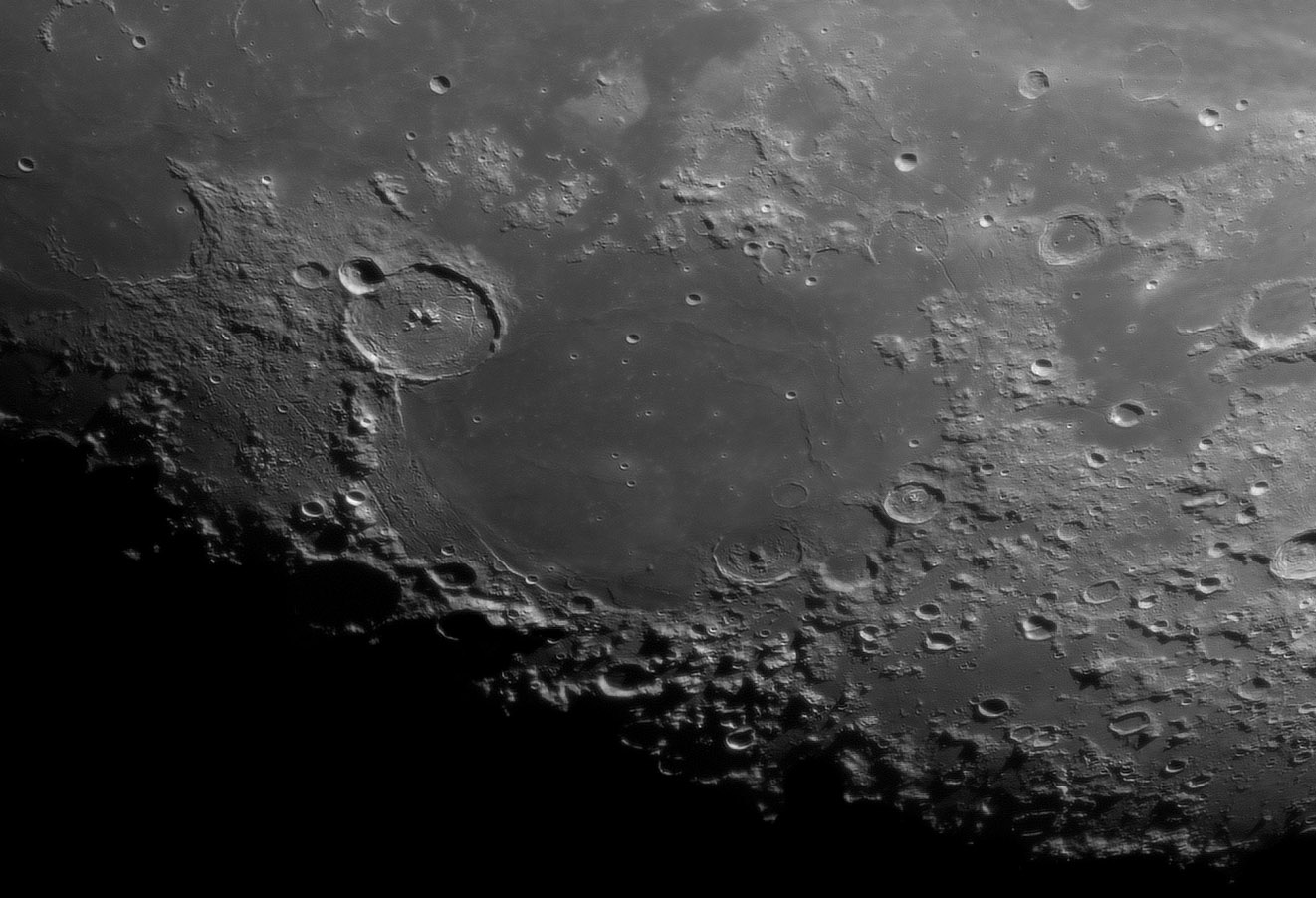Difference between revisions of "May 15, 2012"
| Line 15: | Line 15: | ||
<br /> | <br /> | ||
<strong>Related Links</strong><br /> | <strong>Related Links</strong><br /> | ||
| − | Rükl plate [ | + | Rükl plate [https://the-moon.us/wiki/R%C3%BCkl+52 52]<br /> |
<br /> | <br /> | ||
<p><b>Yesterday's LPOD:</b> [[May 14, 2012|Bright Mapping]] </p> | <p><b>Yesterday's LPOD:</b> [[May 14, 2012|Bright Mapping]] </p> | ||
Revision as of 19:31, 18 August 2018
Rimless, Partially, Humorum

north to the left image by Ramón García Durán, Barcelona, Spain
In Ramón's image a mountainous ring of the Humorum Basin immediately jumped out at me. This is the mountain chain that starts on the west side of Gassendi (the informally named Percy Mountains) and bends around the western shore of the mare with some interruptions. Because of the sunrise lighting the massive peaks of the ring are highlighted by brightness. Along the southwest part of the basin the ring breaks up into smaller, disconnected peaks that cover a wider width that the chain to the north. Strangely, a circle defined by the western rim curves right through the straight Kelvin Scarp. And then it becomes harder to trace the basin rim, especially on the eastern side, which has more gaps that continuity. I though the weak to non-existent rim on the east might be due to a lower elevation, perhaps Humorum formed on uneven ground dipping eastward. But that isn't topographically true. Was it an oblique impact, like Crisium with the downrange side much lower? There really is no evidence for that either. What happened to Humorum's missing rim?
Chuck Wood
Technical Details
20120509 / 20:35 T. U. Maksutov-Cassegrain 180 mm. Intes-Micro Alter-M715 Deluxe (F/15) + Lumenera Infinity2+ IR + R Astronomik Typ 2c filter.
Registax (stack 700 frames). Astra Image (Van Cittert deconvolution). Photoshop, Photomerge.
Related Links
Rükl plate 52
Yesterday's LPOD: Bright Mapping
Tomorrow's LPOD: Moon Bliss
COMMENTS?
Register, Log in, and join in the comments.



